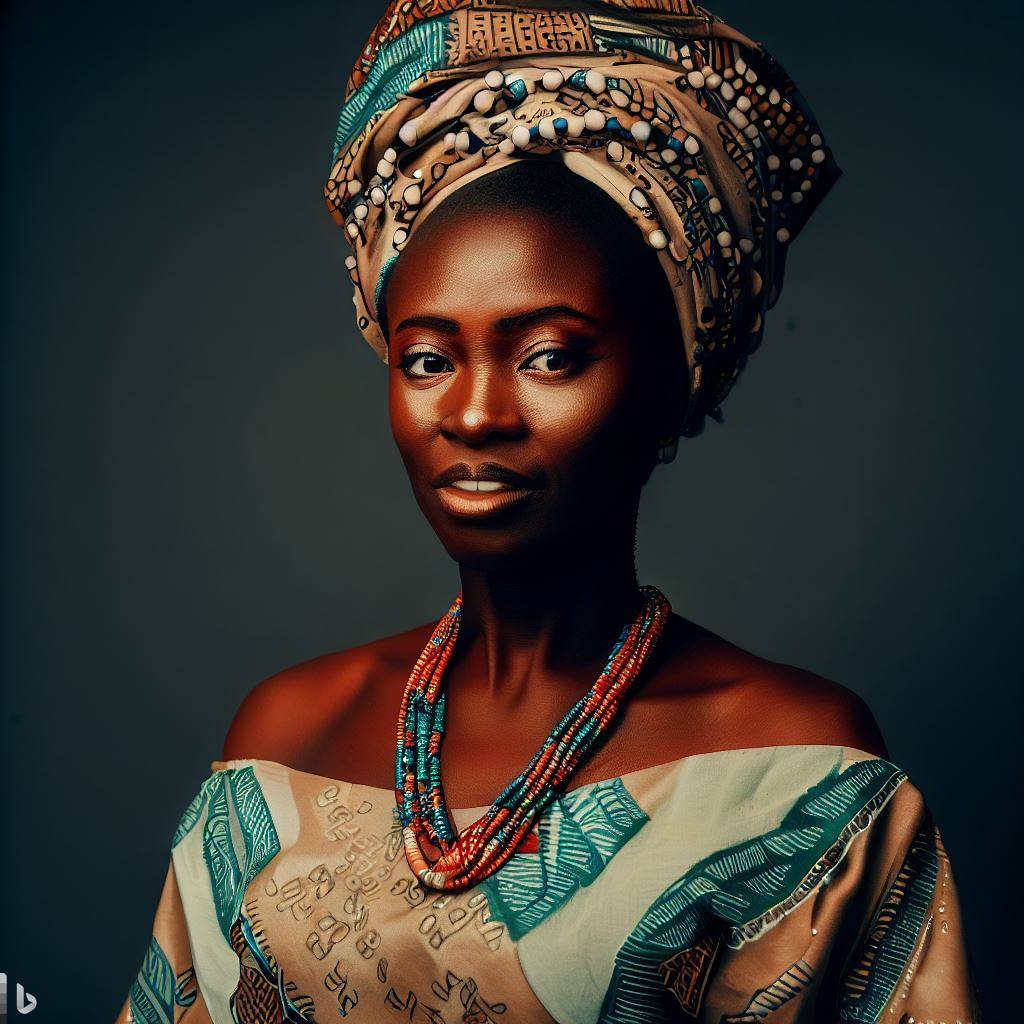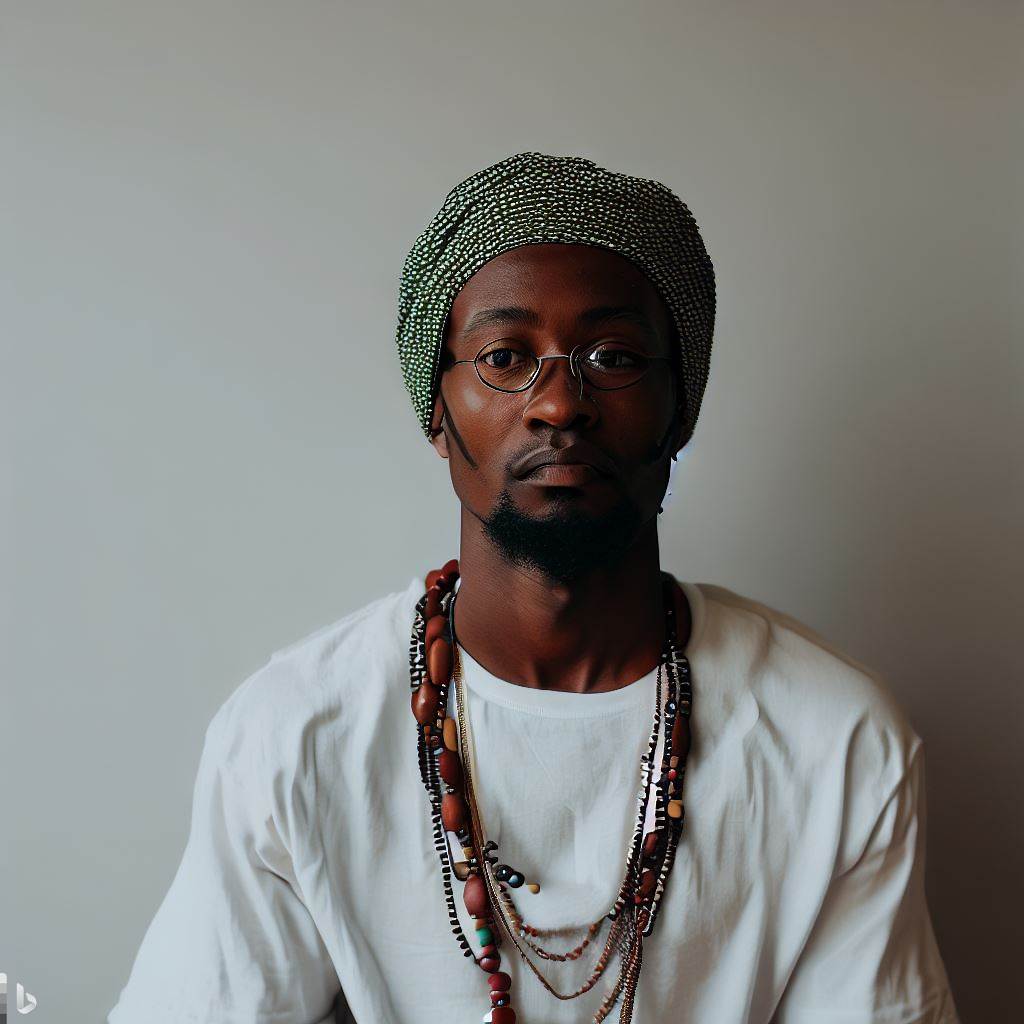Introduction
Nigerian songwriting is a rich and vibrant form of artistic expression that holds deep cultural significance.
Rooted in traditions and customs, it serves as a powerful means of storytelling and preserving heritage.
A. Brief explanation of Nigerian songwriting
Nigerian songwriting encompasses various musical genres such as Afrobeat, Afrobeats, highlife, juju, and traditional folk music.
It involves the creation of lyrics and melodies that convey emotions, share narratives, and communicate social and political messages.
B. Statement about the importance of traditions in Nigerian culture
Traditions play a pivotal role in Nigerian culture, shaping every aspect of life, including songwriting.
They provide a foundation for creativity, influencing themes, rhythms, instrumentation, and lyrical content.
In Nigerian songwriting, traditions serve as a bridge between the past and present, allowing for the preservation and celebration of cultural heritage.
They provide a sense of identity and unity, enabling artists to connect with their roots and communicate their experiences.
Moreover, traditions bring a distinct flavor and uniqueness to Nigerian songs.
By incorporating indigenous instruments, rhythms, and vocal techniques, musicians infuse their compositions with a sense of authenticity that resonates deeply with both local and global audiences.
Furthermore, traditions serve as a source of inspiration for Nigerian songwriters, offering a rich tapestry of stories, mythologies, and folklore.
These narratives often serve as metaphors and symbolism, allowing for deeper layers of meaning and emotional resonance in the songs.
Basically, traditions are an integral part of Nigerian songwriting, providing a cultural framework that enhances creativity, preserves heritage, and creates a shared sense of identity.
By honoring and embracing traditions, Nigerian songwriters contribute to the richness and diversity of the country’s musical landscape.
Traditional Nigerian Music and its Influence on Songwriting
In the rich cultural landscape of Nigeria, traditional music plays a significant role in shaping the art of songwriting.
The essence of Nigerian music lies in the interweaving of ancient melodies, rhythms, and instruments, which have been passed down for generations, enriching contemporary song compositions.
Traditional Nigerian music forms the foundation upon which modern-day Nigerian songs are built.
The deep-rooted influence of traditional music can be heard in various genres, such as Highlife, Juju, and Fuji, among others.
Highlife, which emerged in the 1950s, combines traditional rhythms with Western instruments, creating a vibrant and joyous sound characterized by its syncopated beats and melodic guitar lines.
Juju music, on the other hand, incorporates traditional Yoruba rhythms and elements from the talking drum into its composition, resulting in a groovy and danceable genre.
Fuji, another popular genre, blends traditional Yoruba music with elements of Islamic percussion, creating an energetic and rhythmic sound that resonates with the Nigerian audience.
These genres serve as a testament to the enduring influence of traditional music on the contemporary Nigerian songwriting scene.
A. Overview of traditional music genres in Nigeria
- Highlife: The fusion of Nigerian and Western music, characterized by its syncopated beats and melodic guitar lines.
- Juju: Incorporates traditional Yoruba rhythms and elements from the talking drum into its composition, creating a groovy and danceable sound.
- Fuji: Blends traditional Yoruba music with Islamic percussion, resulting in an energetic and rhythmic genre.
B. The role of traditional rhythms, melodies, and instruments in songwriting
Traditional rhythms, melodies, and instruments serve as the building blocks of Nigerian songwriting.
The intricate patterns of traditional drums provide the rhythmic foundation upon which songs are built, adding depth and complexity to the music.
Melodies derived from traditional scales and vocal techniques infuse Nigerian songs with a distinct flavor. These melodies often evoke a sense of nostalgia and cultural identity, resonating deeply with audiences.
Furthermore, traditional instruments, such as the talking drum, xylophone, and shekere, contribute unique textures and tonalities to compositions, enhancing their overall richness.
C. Examples of popular Nigerian songs that incorporate traditional elements
- “African Queen” by 2Baba: This iconic song seamlessly blends Highlife elements with contemporary R&B, showcasing the influence of traditional music on modern Nigerian songwriting.
- “Iyawo Mi” by Timi Dakolo: This soulful ballad incorporates Yoruba melodic structures and rhythms, creating a heartfelt tribute to love and commitment.
- “Soco” by Wizkid: This Afrobeats anthem features infectious rhythms influenced by Fuji music, captivating listeners with its energetic and danceable vibe.
Essentially, the role of traditions in Nigerian songwriting cannot be overstated. Traditional Nigerian music genres have provided a solid foundation from which contemporary songwriters draw inspiration.
By incorporating traditional rhythms, melodies, and instruments, Nigerian songwriters are able to create music that not only reflects their cultural heritage but also resonates with audiences around the world.
Read: Key Skills for Success in Nigerian Songwriting
Cultural Storytelling Through Songwriting
Songwriting is an art form that allows musicians to express their creativity and convey powerful messages.
In Nigerian music, traditions play a vital role in shaping the narrative and storytelling aspect of songs.
Through the use of folklore, proverbs, and historical events, Nigerian songwriters skillfully craft lyrics that capture the essence of their culture and resonate with their audience.
A. Using Traditions to Tell Stories
Nigerian songwriters recognize the importance of preserving their cultural heritage through music. They understand that traditions hold rich stories and lessons that can be passed down through generations.
By incorporating these traditions into their songs, they ensure that the essence of their culture is not only preserved but also celebrated.
In Nigerian music, storytelling is not limited to the lyrics alone. Songwriters also utilize traditional rhythms, melodies, and instruments to enhance the overall narrative of their songs.
These elements create a deep connection between the music and the cultural traditions they represent.
B. The Use of Folklore, Proverbs, and Historical Events in Lyrics
Folklore, proverbs, and historical events are powerful tools Nigerian songwriters use to convey their messages.
Through folklore, they present mythical tales and age-old stories that have been passed down for centuries.
By infusing these stories into their songs, songwriters engage their audience with captivating narratives that teach valuable lessons.
Proverbs, on the other hand, serve as concise expressions of wisdom and experience. Nigerian songwriters frequently incorporate proverbs into their lyrics to make their messages more relatable and impactful.
These proverbs often carry universal truths that resonate with people from different walks of life.
Furthermore, historical events serve as a source of inspiration for Nigerian songwriters. By referencing momentous occasions in their lyrics, they bring attention to important milestones in their nation’s history.
This not only educates the listeners but also encourages them to reflect on the past and its significance in shaping the present.
C. Influential Nigerian Songwriters Who Excel at Cultural Storytelling
Several Nigerian songwriters have mastered the art of cultural storytelling through their music.
One notable example is Fela Kuti, whose Afrobeat music blends tradition with contemporary issues, creating powerful social commentaries. His songs address political corruption, human rights, and cultural pride.
Another influential artist is Asa, whose soulful music incorporates Yoruba folklore and proverbs. Her songs beautifully merge tradition with modernity, creating a unique and captivating listening experience.
Asa’s ability to perfectly balance cultural elements while addressing relatable themes has earned her international acclaim.
Adekunle Gold also deserves mention for his skillful incorporation of historical events into his songs.
He often references significant moments in Nigerian history, such as the struggle for independence, to convey a sense of national pride and resilience.
In essence, traditions play a fundamental role in Nigerian songwriting by enabling cultural storytelling.
Nigerian songwriters use folklore, proverbs, and historical events in their lyrics to convey powerful messages while preserving their heritage.
Artists like Fela Kuti, Asa, and Adekunle Gold have excelled at cultural storytelling, leaving a lasting impact on both the music industry and their audience.
Read: Exploring the Flourishing Songwriting Industry in Nigeria

Preservation and Promotion of Cultural Identity
Songwriting is an art form that reflects the cultural identity of a society.
In Nigeria, where traditions hold immense significance, songwriters have long recognized the importance of preserving and promoting their cultural heritage through music.
- Music is a powerful tool for preserving and promoting Nigerian cultural heritage.
- Songwriters use traditional melodies, rhythms, and instruments to incorporate their culture into their songs.
- This helps preserve the essence of Nigerian traditions and ensures they are passed down to future generations.
- Moreover, by celebrating their cultural heritage, songwriters contribute to the promotion of Nigerian identity on a global scale.
A. Importance of maintaining Nigerian cultural heritage in songwriting
- Songwriters play a crucial role in keeping Nigerian traditions alive through their music.
- Their lyrics often address social, historical, and cultural aspects, creating awareness and fostering pride.
- By embracing their roots, songwriters inspire a sense of belonging and unity among Nigerians.
- They help to counteract the influences of Western culture and globalization on Nigerian society.
- Through their songs, Nigerian songwriters become cultural ambassadors, sharing their traditions with a wider audience.
B. How traditions help Nigerian songwriters connect with their audience
- Traditions provide a common ground between songwriters and their audience, creating a shared experience.
- Audiences can relate to the familiar sounds and themes rooted in Nigerian traditions.
- Traditional music elements evoke emotions and nostalgia, forging a deeper connection between the artist and listener.
- By embracing their cultural heritage, songwriters establish credibility and authenticity, enhancing the audience’s trust.
C. Examination of the impact of globalization on Nigerian songwriting and the need for balance
- Globalization has undoubtedly exposed Nigerian songwriters to diverse musical styles and influences.
- While this can be enriching, it also poses the risk of diluting traditional Nigerian elements in songwriting.
- Songwriters must strike a balance between incorporating global influences and retaining their cultural roots.
- They can experiment with new sounds while staying true to the essence of Nigerian music.
- This balance ensures the preservation of traditions while staying relevant in the ever-evolving music industry.
In a nutshell, traditions play a crucial role in Nigerian songwriting, contributing to the preservation and promotion of cultural identity.
By maintaining Nigerian cultural heritage, songwriters connect with their audience on a deeper level, fostering unity and pride.
However, they must also navigate the impact of globalization, finding a balance between global influences and traditional elements.
Through their songs, Nigerian songwriters have the power to shape and define the cultural landscape, keeping their rich traditions alive for generations to come.
Read: Emerging Trends in Scriptwriting: Nigeria’s Perspective
The Fusion of Modern and Traditional Elements
A. How Nigerian songwriters blend traditions with contemporary styles, such as Afrobeats
In the realm of Nigerian songwriting, the fusion of modern and traditional elements is a prevailing theme.
Songwriters in Nigeria have successfully blended traditions with contemporary styles such as Afrobeats, resulting in a unique and captivating musical landscape.
B. Examples of successful songs that combine traditional rhythms with modern production techniques
One example of this fusion can be seen in the popular song “Joromi” by Sir Victor Uwaifo.
Released in 1969, this track incorporates traditional rhythms and melodies with modern production techniques, creating a catchy and unforgettable tune.
Another notable song that showcases the blending of traditional and modern elements is “Johnny” by Yemi Alade.
This Afro-pop hit combines Nigerian folklore and modern beats, resulting in a chart-topping success and a prime example of how traditions can be integrated into contemporary music.
C. The evolving nature of Nigeria’s music industry and its impact on songwriting traditions
The evolving nature of Nigeria’s music industry has had a profound impact on songwriting traditions.
As the industry grows and embraces new technologies and trends, songwriters are constantly challenged to find innovative ways to incorporate traditional elements into their music.
This evolution can be observed in the rise of Afrobeats, a genre that combines traditional African rhythms with Western influences such as hip-hop and R&B.
Artists like Burna Boy and Wizkid have conquered the global music scene with their unique blend of traditional Nigerian sounds and modern production techniques.
Furthermore, the increasing popularity of streaming platforms and social media has opened up new avenues for Nigerian songwriters to showcase their music.
This shift in the industry has led to a greater appreciation for diverse musical styles and a broader acceptance of traditions in songwriting.
This fusion of traditional and modern elements in Nigerian songwriting not only allows artists to preserve their cultural heritage but also enables them to reach a wider audience.
By incorporating traditional rhythms and melodies into their music, Nigerian songwriters can tap into a sense of nostalgia and familiarity while still offering a fresh and exciting sound.
Most importantly, Nigerian songwriters have successfully blended traditions with contemporary styles, creating a vibrant and dynamic music scene.
Through the fusion of traditional rhythms and modern production techniques, artists have been able to captivate audiences both locally and globally.
As the music industry continues to evolve, the integration of traditions in songwriting will undoubtedly remain a vital aspect of Nigerian music culture.
Read: The Role of Scriptwriters in Nollywood’s Global Success
Conclusion
Traditions play a vital role in Nigerian songwriting, providing a foundation of cultural heritage and identity.
We have seen how Nigerian artists incorporate traditional elements such as rhythms, instruments, and storytelling techniques into their music.
This not only preserves the rich cultural heritage of Nigeria but also allows for the expression of social and political issues in a relatable way.
It is important to appreciate and support Nigerian artists who are dedicated to preserving these traditions through their music.
By doing so, we ensure that our cultural heritage remains alive and continues to influence and inspire future generations.
Looking ahead, the future of traditions in Nigerian songwriting appears promising.
With the global popularity of Nigerian music, there is an increased appreciation for the unique blend of traditional and modern elements.
As long as there are artists who prioritize cultural preservation and innovation, traditions will thrive in Nigerian songwriting and the broader music landscape in Nigeria.




